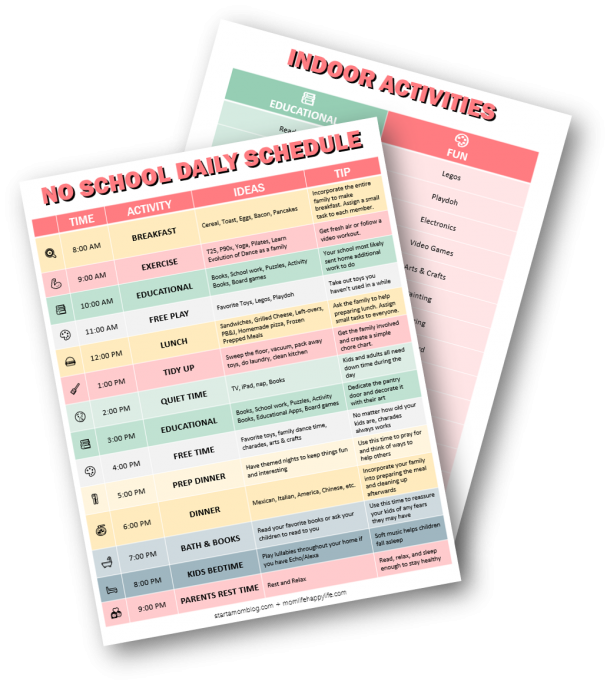Credit cards probably aren’t the first thing that comes to mind when you think of your children, but the way they hear you talk about money will have a significant impact on their financial future. Discussing credit cards with your kids in the right way will help them use credit more effectively and avoid common mistakes.
This article will cover some of the best strategies for talking about credit cards with your kids and helping them become financially literate. It’s critical to start having these conversations from a young age so your child starts to develop a healthy attitude toward money.
Consider Your Habits
While what you say to your child will have a lasting impression, what they see you do is even more important. It’s difficult to have positive conversations about credit cards and other aspects of personal finance if you consistently contradict your own advice.
With that in mind, you should think about the ways in which you use credit cards before you start talking about them with your children. Parents often pass bad credit card habits to their kids without realizing it—it’s crucial for them to see you using credit cards in the right ways.
Explain How Credit Cards Work
Kids generally understand cash and debit cards, but credit cards can be more confusing. Your child should understand that the money they spend with a credit card isn’t actually their money—unlike other forms of payment, this opens users up to the possibility of debt.
Credit card companies depend on interest payments and other fees, and people who didn’t learn financial literacy from a young age often have trouble avoiding these expenses later on. Make sure to explain that they’ll end up spending even more money if they don’t pay the balance off immediately.
Warn Them About Credit Limits

It’s easy to simply swipe your credit card for each transaction without thinking about your balance, but your line of credit will eventually run out. Each credit card comes with a limit that represents the maximum amount of credit you can draw on before paying off some of the balance.
You can technically use your card up to the limit, but it’s important to give yourself enough room to cover any unplanned expenses. Let your child know that they should only use their credit card for some expenses—maxing out your cards is never the best approach.
Go Over Credit Scores
Credit cards are primarily a way to spend money, but the way your child uses their card will have an impact on their credit score. Late or missed payments, high credit utilization, and other factors could substantially decrease their score and make it much more difficult for them to qualify for new lines of credit with competitive interest rates.
Nearly half of all Americans don’t have any idea how credit scores work, and this is one of the most important components of financial literacy. A poor credit score could cause serious financial problems, and it can take years for your score to fully recover.
Add Them as an Authorized User
Giving your child access to a credit card might not sound like a great idea, but it’s a great way to help them take on new financial responsibilities and learn more about how credit cards work. There’s no legal minimum age for authorized users, although some credit card providers have their own requirements.
Your credit card company will report the authorized user to credit bureaus, so this strategy allows your child to start building credit before they’re even old enough to have their own card. Some companies only report positive items for authorized users, enabling you to avoid the risk of negatively impacting your child’s credit.
As an authorized user, your child will also receive a copy of your card which they can use to cover emergencies and other costs. By the time they turn 18, they’ll know enough about credit to avoid the errors that so many people make after receiving their first card.
Reinforce Delayed Gratification
Kids generally want to get what they want immediately, and it often takes time to teach a child the importance of delayed gratification. Children who are used to immediately fulfilling their desires are more likely to use credit cards to buy things they can’t afford simply because they can’t resist the impulse.
While there’s nothing wrong with using a credit card, they can be problematic for people who aren’t willing to wait until they can afford a purchase. Helping your child build good saving habits from a young age will also allow them to get in the habit of saving over time rather than making impulse purchases.
Talk About Marketing

Federal regulations discourage certain kinds of companies from targeting children in their ads, but the reality is that kids are exposed to a variety of ads every day. By the time they receive a credit card, they should understand that advertisers design their content to take advantage of children and make them want things they don’t need.
Marketing is the most obvious way in which kids are encouraged to spend money, but it’s not the only thing you should be aware of as a parent. Your child’s friends may not receive the same financial advice, and kids often influence each other’s purchases. Children who spend money simply to keep up with their friends often have trouble correcting the habit later on.
Of course, that doesn’t mean that kids should never buy things they want—rather, it’s important that they understand the concept of budgeting for purchases and only spending the money they have. Marketing, peer pressure, and a variety of other factors can lead children to make poor decisions.
Most parents don’t discuss credit cards or money enough with their kids, and simply having an honest conversation will go a long way toward your child’s financial future. These are some of the most important ideas to keep in mind as you teach your kids about credit cards.


I’m Logan! I am a CPA with a Masters in Taxation as well as a financial expert regularly seen in various publications. Money Done Right is the culmination of my passion for helping people make the best financial decisions possible by making more money, saving more money, and growing their streams of passive income.



